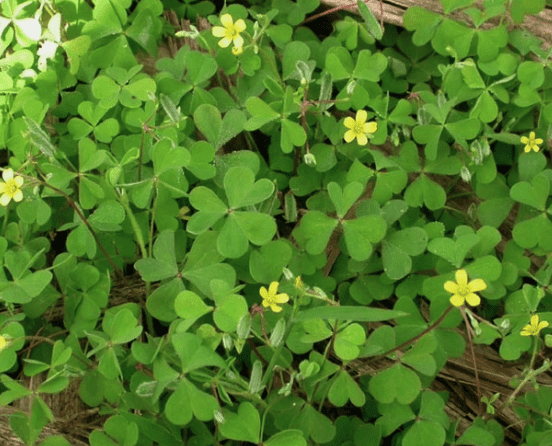
Creeping woodsorrel (Oxalis corniculata)
Creeping woodsorrel, also known as Yellow woodsorrel, Procumbent yellow sorrel
Creeping woodsorrel (Oxalis corniculata) is an herbaceous plant with a tangy, lemon-like taste, often used in teas for its high vitamin C content. Despite its benefits, consuming it in large quantities can be harmful due to its significant oxalate levels. These oxalates can interfere with calcium absorption, potentially leading to the formation of kidney stones or other calcium-related issues. Moderation is key, especially for individuals with kidney problems or those susceptible to kidney stones.
Key Facts About Creeping woodsorrel
Attributes of Creeping woodsorrel
Lifespan
Perennial
Plant Type
Herb
Plant Height
10 cm to 35 cm
Spread
45 cm
Leaf Color
Green Purple Red
Flower Size
4 mm to 5 mm
Flower Color
Yellow
Scientific Classification of Creeping woodsorrel
Phylum
Vascular plants
Class
Dicotyledons
Order
Woodsorrels, quandongs, and allies
Family
Wood sorrel
Genus
Wood sorrels
Species
Creeping woodsorrel
Toxicity
Ingestion or significant physical contact with sap